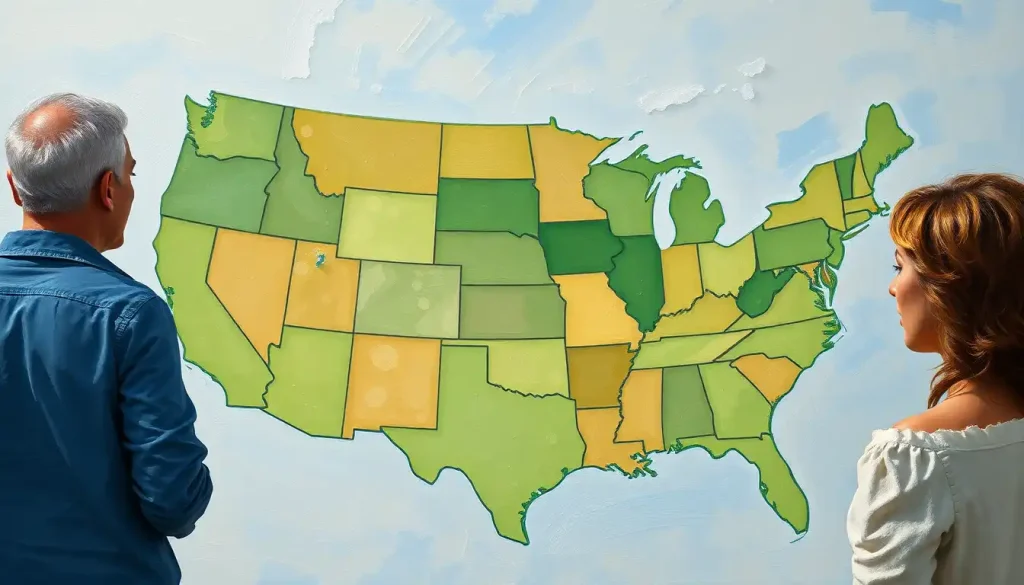From Latin America’s crown jewel of prosperity to a cautionary tale of economic collapse, few nations have experienced such a dramatic reversal of fortune as the country that once boasted the continent’s highest standard of living. Venezuela’s journey from oil-rich powerhouse to economic crisis serves as a stark reminder of the fragility of wealth built on a single resource and the consequences of mismanagement.
The story of Venezuela’s rise and fall is a complex tapestry woven with threads of abundance, ambition, and ultimately, adversity. It’s a tale that resonates far beyond the borders of this South American nation, offering valuable lessons for countries around the world grappling with the challenges of resource-dependent economies.
The Golden Era: Venezuela’s Ascent to Prosperity
Venezuela’s path to becoming an economic powerhouse began with the discovery of oil in the early 20th century. The country’s vast petroleum reserves quickly transformed it from a relatively modest agrarian society into a burgeoning industrial nation. By the 1950s, Venezuela had emerged as a major player in the global oil market, its fortunes rising alongside the world’s growing thirst for black gold.
This newfound wealth ushered in an era of unprecedented prosperity. The country’s capital, Caracas, became a symbol of modernity and progress, with gleaming skyscrapers and wide boulevards rivaling those of any major metropolis. Infrastructure projects flourished, connecting once-isolated regions and facilitating economic growth across the nation.
The oil boom also fueled ambitious social programs. Venezuela invested heavily in education, healthcare, and public services, raising the standard of living for millions of its citizens. The country’s middle class expanded rapidly, and Venezuelans enjoyed a level of prosperity that was the envy of their Latin American neighbors.
During this golden era, Venezuela’s wealth seemed boundless. The country’s per capita income soared, surpassing that of many European nations. It was not uncommon to hear Venezuela referred to as the “Saudi Arabia of South America,” a comparison that spoke volumes about its perceived economic might.
The Pitfalls of Oil Dependency
However, beneath the surface of this apparent success lay the seeds of future trouble. Venezuela’s reliance on oil exports became increasingly pronounced, overshadowing other sectors of the economy. This overreliance would prove to be a double-edged sword, exposing the country to the volatile whims of global oil markets.
The lack of economic diversification left Venezuela vulnerable to what economists call the “resource curse” or “Dutch disease.” As oil exports boomed, other industries struggled to compete, leading to a lopsided economy heavily skewed towards petroleum production. This phenomenon is not unique to Venezuela; many resource-rich nations have grappled with similar challenges, as seen in the case of Brunei’s wealth, which also heavily depends on oil and gas exports.
When oil prices were high, Venezuela’s coffers overflowed. But when prices dipped, the country found itself ill-equipped to weather the storm. The government’s tendency to spend lavishly during boom times, rather than saving for leaner periods, exacerbated this vulnerability.
Political Upheaval and Economic Mismanagement
The election of Hugo Chávez in 1998 marked a turning point in Venezuela’s economic trajectory. Chávez’s socialist policies, while initially popular among the country’s poor and working class, would have far-reaching consequences for the nation’s wealth.
Under Chávez’s leadership, Venezuela embarked on an ambitious program of nationalization, bringing key industries under state control. While the intention was to redistribute wealth and reduce inequality, the reality often fell short of these lofty goals. State-run enterprises, including the national oil company PDVSA, suffered from mismanagement and a lack of investment, leading to declining productivity and efficiency.
The Chávez government’s approach to managing oil revenues also proved problematic. Instead of reinvesting in infrastructure and diversifying the economy, much of the windfall from high oil prices was channeled into expansive social programs and subsidies. While these initiatives provided short-term relief to many Venezuelans, they did little to address the underlying structural issues in the economy.
As Venezuela’s economic policies grew increasingly at odds with global norms, the country found itself increasingly isolated on the international stage. Tensions with the United States and other Western nations led to sanctions that further strained the economy, limiting access to international markets and financial systems.
The Unraveling of Venezuela’s Economy
The cracks in Venezuela’s economic foundation began to widen dramatically in the 2010s. The death of Chávez in 2013 and the succession of Nicolás Maduro to the presidency coincided with a sharp decline in global oil prices, exposing the fragility of the country’s oil-dependent economy.
What followed was a economic freefall of staggering proportions. Hyperinflation took hold, eroding the value of the Venezuelan bolívar at an unprecedented rate. At its peak, inflation reached mind-boggling levels, with prices doubling in a matter of days or even hours. The currency became so devalued that Venezuelans resorted to weighing stacks of bills rather than counting them.
The collapse of the oil industry, once the lifeblood of the Venezuelan economy, dealt a devastating blow. Years of underinvestment and mismanagement had taken their toll, and oil production plummeted to levels not seen since the 1940s. This decline in oil revenues left the government unable to finance imports of basic goods, leading to widespread shortages.
Supermarket shelves emptied, and Venezuelans found themselves queuing for hours to purchase basic necessities like food and medicine. The healthcare system, once a source of national pride, crumbled under the weight of equipment shortages and an exodus of medical professionals seeking better opportunities abroad.
Indeed, the mass exodus of skilled workers and professionals became one of the most visible symptoms of Venezuela’s economic crisis. Millions of Venezuelans fled the country, seeking refuge and opportunity in neighboring nations and beyond. This brain drain further hampered the country’s prospects for recovery, depriving it of the human capital needed to rebuild its shattered economy.
Lessons from Venezuela’s Economic Downfall
Venezuela’s journey from wealth to crisis offers sobering lessons for other nations. Perhaps the most glaring is the danger of over-reliance on a single resource. Countries blessed with abundant natural resources must resist the temptation to neglect other sectors of their economy. The importance of economic diversification cannot be overstated, as demonstrated by nations like Costa Rica, whose wealth stems from a more balanced economic approach.
The Venezuelan experience also underscores the critical importance of sound economic management and institutional strength. Even vast natural resources cannot insulate a country from the consequences of poor governance and corruption. Transparency, accountability, and the rule of law are essential foundations for sustainable economic growth.
Furthermore, Venezuela’s story highlights the perils of short-term thinking in economic policy. While populist measures may yield immediate political gains, they can have devastating long-term consequences if not balanced with prudent fiscal management and investment in the future.
Charting a Path to Recovery
Despite the depth of its economic crisis, Venezuela is not without hope for recovery. The country still possesses vast natural resources, including the world’s largest proven oil reserves. However, harnessing this potential will require significant changes in both policy and practice.
One crucial step towards recovery would be the diversification of the economy beyond oil. Venezuela could look to develop other industries, such as agriculture, manufacturing, and tourism, to create a more resilient economic base. This approach has proven successful for other resource-rich nations, such as Brazil, whose wealth stems from a more diverse economic portfolio.
Attracting foreign investment and expertise will be crucial in rebuilding Venezuela’s shattered industries. This will likely require a shift in political and economic policies to create a more favorable business environment. Lessons could be drawn from countries like Guyana, whose oil wealth is being managed with an eye towards sustainable development and foreign partnerships.
Rebuilding Venezuela’s infrastructure and institutions is another critical challenge. Years of neglect have left much of the country’s physical and organizational infrastructure in disrepair. Addressing this will require significant investment and a long-term commitment to development.
Perhaps most importantly, addressing corruption and improving governance will be essential for any sustainable recovery. Transparency in the management of natural resources, accountability in government spending, and respect for the rule of law are all crucial elements in rebuilding trust both domestically and internationally.
The Road Ahead: Challenges and Opportunities
Venezuela’s path to economic recovery will undoubtedly be long and challenging. The depth of the crisis means that there are no quick fixes or easy solutions. However, the country’s abundant natural resources and the resilience of its people offer hope for a brighter future.
As Venezuela grapples with its economic challenges, it might find inspiration in the experiences of other nations that have successfully navigated similar crises. For instance, Spain’s wealth rebounded significantly after the country implemented sweeping economic reforms in the wake of the 2008 financial crisis.
The international community also has a role to play in Venezuela’s recovery. While sanctions have been used as a tool to pressure for political change, a more constructive approach might involve offering economic support and expertise to help rebuild the country’s shattered economy. This could be similar to the international efforts that have supported economic development in many African countries, whose wealth has grown with targeted assistance and investment.
It’s worth noting that Venezuela’s journey is not unique in the annals of economic history. Many nations have faced severe economic crises and emerged stronger. The key lies in learning from past mistakes, implementing sound economic policies, and harnessing the country’s natural and human resources effectively.
Conclusion: Lessons for a Global Audience
Venezuela’s dramatic reversal of fortune serves as a stark reminder of the fragility of economic prosperity. It underscores the importance of diversification, sound governance, and long-term planning in building sustainable wealth.
As we reflect on Venezuela’s journey, it’s crucial to recognize that the challenges of managing natural resource wealth are not confined to any one country or region. From the oil-rich nations of the Middle East to the mineral-wealthy countries of Africa, many nations grapple with similar issues. Even developed economies must navigate the complexities of resource management and economic diversification.
The story of Venezuela’s wealth – its rise, fall, and potential for recovery – offers valuable lessons for policymakers, economists, and citizens around the world. It reminds us that true prosperity is built not just on natural resources, but on the foundations of good governance, economic diversity, and sustainable development practices.
As we look to the future, the global community would do well to heed these lessons. Whether we’re considering the wealth of our planet as a whole or the economic prospects of individual nations, the principles of sustainable resource management and balanced economic development remain crucial.
Venezuela’s story is far from over. With the right policies, leadership, and international support, the country has the potential to write a new chapter in its economic history. As it does so, the world will be watching, learning, and hopefully, helping to ensure that the mistakes of the past are not repeated, and that the promise of prosperity can be realized for all Venezuelans.
References:
1. Coronel, G. (2008). The Corruption of Democracy in Venezuela. CATO Institute.
2. Hausmann, R., & Rodríguez, F. (Eds.). (2014). Venezuela Before Chávez: Anatomy of an Economic Collapse. Penn State Press.
3. Buxton, J. (2018). Venezuela: Deeper into the Abyss. Revista de Ciencia Política, 38(2), 409-428.
4. Vera, L. (2015). Venezuela 1999–2014: Macro-Policy, Oil Governance and Economic Performance. Comparative Economic Studies, 57(3), 539-568.
5. Monaldi, F. (2018). The Collapse of the Venezuelan Oil Industry and Its Global Consequences. Atlantic Council.
6. Corrales, J., & Penfold, M. (2015). Dragon in the Tropics: Venezuela and the Legacy of Hugo Chávez. Brookings Institution Press.
7. Rodríguez, F. (2018). Understanding the Venezuelan Collapse. SSRN Electronic Journal.
8. Toro, F. (2020). How Venezuela’s Nicolás Maduro Survived 2019. Foreign Affairs.
9. International Monetary Fund. (2019). World Economic Outlook Database.
10. United Nations High Commissioner for Refugees. (2021). Venezuela Situation. UNHCR.












Would you like to add any comments? (optional)